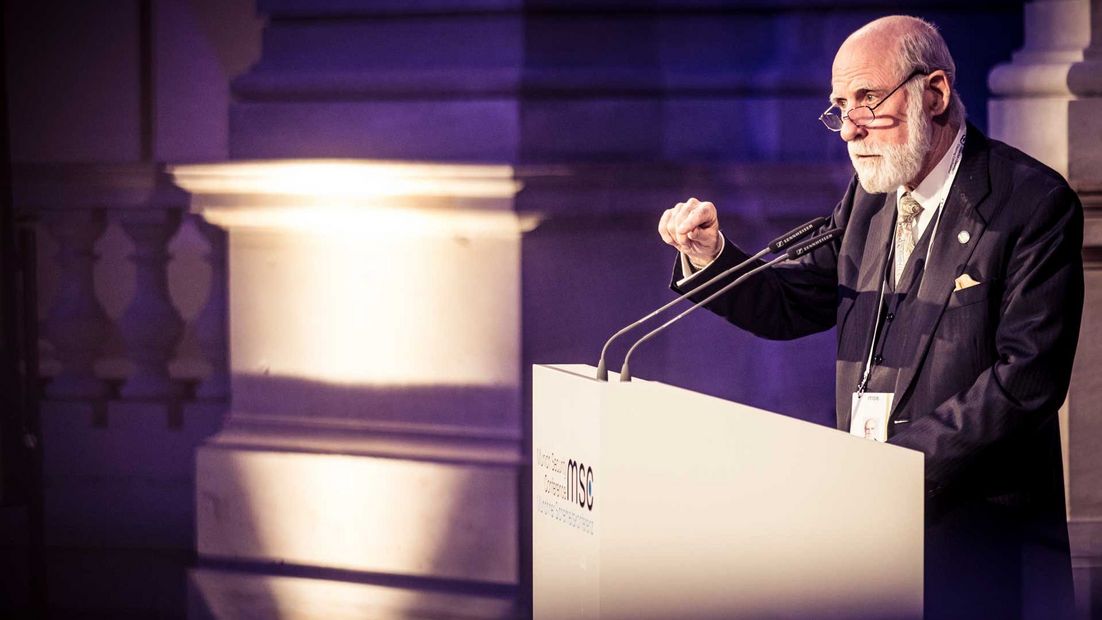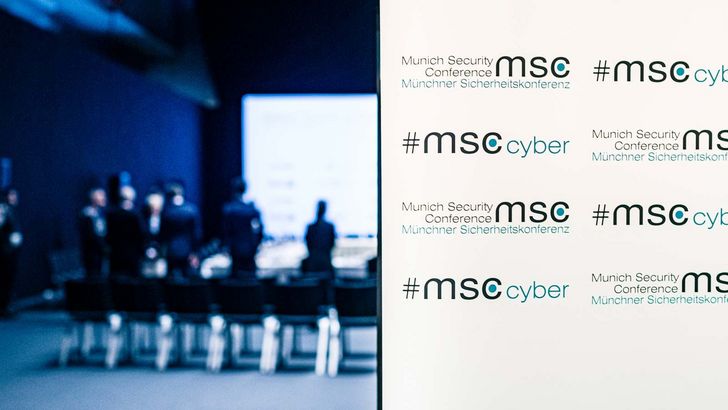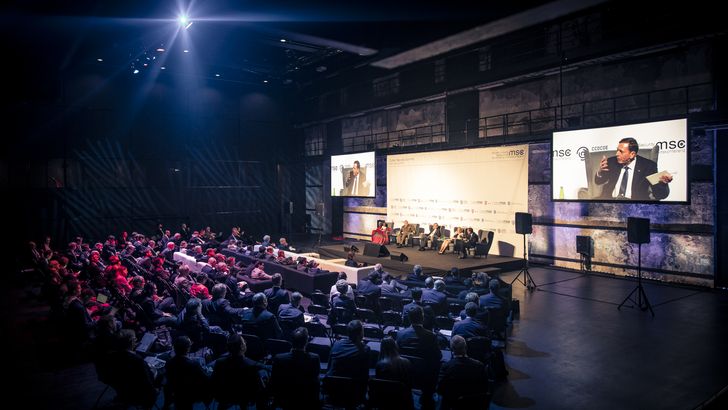

Vint Cerf: "Implications of a Digital Commons"
At the MSC Cyber Security Summit 2019 in Berlin, Vint Cerf, Vice President and Chief Internet Evangelist at Google, spoke on the idea of the internet as a digital commons and its implications for the security of cyberspace: "Cybersecurity is a broad concept and its achievement implies protections from harm for all participants, and identification and apprehension of parties abusing their access to cyberspace to harm others."
That we live in a digital age is commonly understood - we rely increasingly on digital technology in our daily lives. Over 50 years ago, visionaries like J.C.R. Licklider and Douglas Engelbart drew attention to the potential of computers to augment human intellect. The Internet and it’s popular World Wide Web application have demonstrated that a powerful collaborating synergy is possible that augments human capacities through sophisticated computing. As we experience voice interactions with services like the Google Assistant, Apple’s Siri and Amazon’s Alexa, we are seeing practical artificial intelligence and machine learning at work. These tools carry out tasks on our behalf, report back their results and act, increasingly, as the digital helpers the early visionaries hoped might be possible.
None of the applications we use today would be possible without a global and widely shared infrastructure ranging from a complex of undersea cables to collections of satellites, mobile telephone towers, Wi-Fi hot spots and terrestrial optical fiber networks. In addition to these physical resources we have massive computing facilities in data centers around the world that carry out the computations needed to deliver the internet‘s services and content at high capacity to eager consumers. Layer upon layer of communication and application protocols support a vast array of Web-based services that are accessed by a growing collection of programmable devices including laptops, desktops, mobiles, tablets, smart appliances, smart buildings and even smart city ecosystems.
We might characterize these distributed and widely shared resources (for example, computing, communications, software, standard communications protocols and application software) as a digital commons. Like every commons, it can be overconsumed. It can be abused (inadequate irrigation, poisoning by over fertilization). Our global conundrum is to protect that commons and its users from harm while enhancing their ability to share resources and to flywheel on shared knowledge.
An example to illustrate this idea comes from the Global Commission on the Stability of Cyberspace: they have proposed norms that would protect the core public infrastructure of the Internet from harm: the fiber cables, routers, domain name and root servers, the routing algorithms and their implementation, and then apply public key cryptography for signing the root zones and end-to-end cryptography to make domain name lookups confidential and protecting the integrity of routing updates. Other norms touching on equally important aspects of cyberspace have been developed by the Commission.
As a practical matter, we must overlay on this shared commons the reality of the Peace of Westphalia that 250 years later still guides the concept of national boundaries and international cooperation. National governments conceive of their responsibilities to their citizens in different ways. If we are to preserve the enormous values already illustrated by the successful uses of the Internet and World Wide Web, we must find a way to achieve policy interoperability as the packets of the Internet cross international boundaries to serve a world of users.
I had the honor to collaborate with an extraordinary set of people from all over the world and with a variety of backgrounds in a panel chartered by the Secretary-General of the United Nations, Antonio Guterres, to explore digital cooperation. The term “digital cooperation” was chosen in part to give wide range to the panel’s discussions. A report was presented to the Secretary-General in June of this year (2019). We titled the report: “The Age of digital Interdependence” intending to emphasize how dependent we have become on each other’s digital infrastructure around the world. The panel was co-chaired by Melinda Gates and Jack Ma and given great latitude to consult broadly and to explore many conceptual interpretations of “digital cooperation.” The report considered three possible paths towards a framework for digital cooperation among the many stakeholders in the ecosystem of cyberspace. In the interest of time, I will not try to summarize these choices here, but simply name them and urge interested parties to read the report for details. The three paths were titled: 1) Internet Governance Forum Plus (IGF Plus), 2) Distributed Co-Governance Architecture and 3) Digital Commons Architecture. All three were aimed at identifying processes that would lead to identification and solution of operational, social and economic problems arising in digital environments.
One result of the High Level Panel report is the initiation of further exploration of cooperation models that lead to improvement in the safety, security, privacy and stability of the digital commons we live in today. Of the three models suggested, the one with the longest history is the IGF-Plus concept which has the benefit of experience and a place within the UN system.
At the IGF that is about to start in Berlin, the UN, the German Government and other stakeholders will work to bootstrap a Global Commitment for Digital Cooperation intended to explore practical avenues to address challenges and opportunities arising in the digital revolution of our times. Among the many potential foci for work, Google is especially but not exclusively committed to working in cybersecurity, data governance, ethical application of artificial intelligence and the introduction of strongly authenticated digital identity.
Cybersecurity is a broad concept and its achievement implies protections from harm for all participants, and identification and apprehension of parties abusing their access to cyberspace to harm others. Multi-lateral agreements will be needed to achieve this objective and multi-stakeholder consultations will be essential to the formulation of effective policies. Interestingly, all parties have roles to play in the securing of cyberspace including suppliers and users who should adopt defensive practices against harmful behaviors. Governments need to adopt rules that aid all participants who seek security including transactions involving transnational exchanges.
Data is the oxygen that keeps networked businesses alive and governance of data transfers, usage and retention represent important factors in the implementation of data security, including the protection of privacy. The GDPR is a good example of an effort to codify these protections. Successful data governance practices will facilitate data protection as well as data sharing.
Artificial Intelligence and Machine Learning have become synonymous with major breakthroughs in computing capabilities. These remarkable capabilities have generated admiration and concern in all sectors. Some fear job loss and others see dramatic improvement in our ability to apply computing power. It is highly desirable to use these tools in responsible ways that are transparent, explainable, safe and accountable.
Finally, strongly authenticated digital identity is another desirable feature of digital environments so that users can be reassured that no one will be able to fabricate artifacts that are falsely attributable. The same technology can be used to assure the provenance of digital objects.
One can readily imagine the participants in the MSC taking their learnings from the MSC experience and injecting these insights into an enhanced IGF-Plus process. I hope the MSC will engage substantively to help make our digital commons the productive and constructive environment we all wish it to be.



